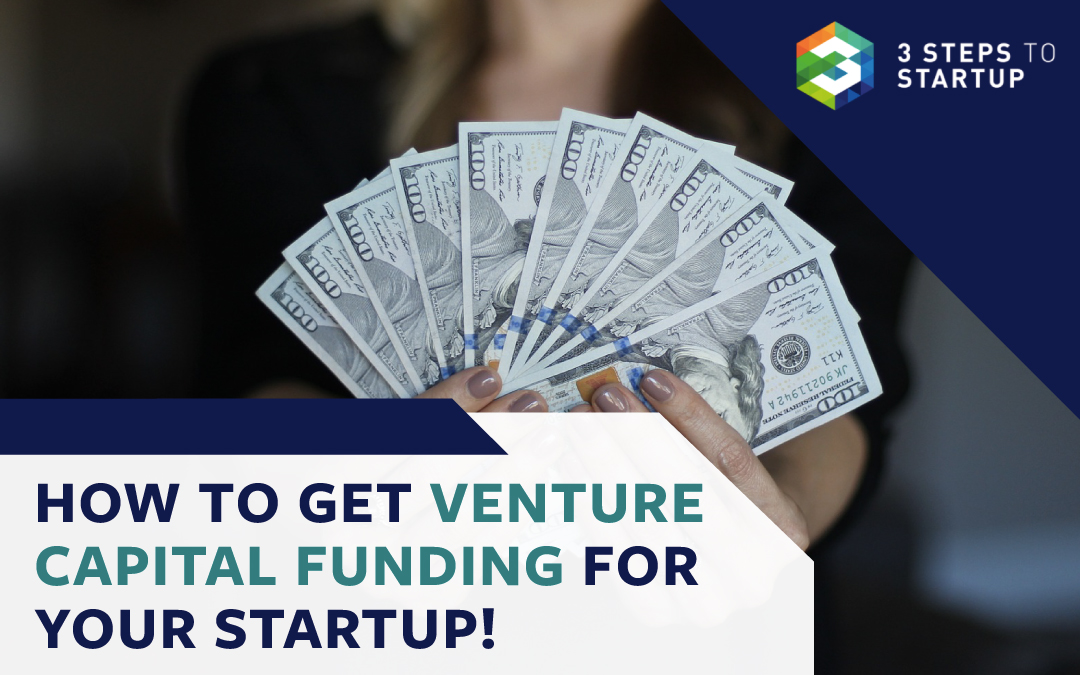
Getting your startup off the ground requires one crucial element—funding. With the right approach, you can secure the financial support you need to turn your entrepreneurial dreams into reality. Whether you’re eyeing venture capital or considering other funding avenues, there are various strategies to explore.
In this blog post we will delve into different funding options, with a particular focus on how you can leverage the West Virginia Capital Access Program (WVCAP) to secure venture capital. Let’s discover how to set your startup on the path to success.
Understanding Different Types of Business Funding
Understanding the types of business funding is crucial before diving into venture capital. Here are come common options:
- Bootstrapping: Self-funding, otherwise known as bootstrapping, lets you leverage your own financial resources to support your business. This could mean using your savings, tapping into your 401(k) or turning to family and friends for capital. It could also mean using your profits to fund your business. This option gives you complete control, but can be financially risky.
- Debt Financing: Borrowing money through loans or credit lines that you must repay with interest. It’s a good option for maintaining ownership but adds financial liability.
- Equity Financing: Selling a part of your company in exchange for cash. This is ideal for bringing in investors who can offer valuable guidance, although it takes away from your sole ownership.
- Grants: Securing non-repayable funds from governments or organizations. It’s a great way to get free money, but the competition can be fierce.
Each funding type has its own benefits and drawbacks, making it important to choose what aligns best with your business goals.
Using Lender Match for SBA-Guaranteed Loans
The Small Business Administration (SBA) makes it easier for startups to get loans by guaranteeing them, which reduces the risk for lenders. The Lender Match service connects entrepreneurs with SBA-approved lenders. Here’s how it works:
First, you sign up and complete a quick online form detailing your business and funding needs. Then, you’ll get matched. Within 2 business days, you’ll receive an email with contact info for interested lenders. Then, you’ll connect and reach out to these lenders, discuss your needs and apply for funding.
Using Lender Match can streamline the loan process, offering an accessible route for securing SBA-backed loans, which can be a solid option for startups needing capital without giving up equity.
Exploring SBICs for Equity and Debt Investments
Small Business Investment Companies (SBICs) are a solid option for startups looking for both funding and mentorship. These are private investment funds, but they’re regulated by the SBA, ensuring they follow specific guidelines. Here’s a breakdown of how SBICs can help:
- Equity Investments: SBICs can inject capital into your business in exchange for ownership shares. This can be great if you’re looking to scale quickly and want investors who can provide strategic advice.
- Debt Investments: Need a loan? SBICs offer loans at competitive rates. They use their own capital plus funds borrowed with an SBA guarantee to give you the financial boost you need.
- The dual approach of equity and debt investments means SBICs can provide tailored financial solutions to fit your specific needs. By leveraging the expertise and resources of SBICs, you can not only secure necessary funds, but also gain valuable business insights and networking opportunities.
Federal Research and Development Funding Through SBIR
The Small Business Innovation Research (SBIR) program is an awesome opportunity for startups focused on research and development. This program offers competitive, awards-based funding to help commercialize your groundbreaking ideas. Here’s a quick rundown of its three phases:
- Phase I: Secure up to $150,000 over 6-12 months to demonstrate the feasibility of your concept.
- Phase II: Get serious with your R&D efforts with awards up to $1 million for a period of up to 2 years.
- Phase III: Time to go to market! Use non-SBIR funds to commercialize your project.
SBIR funding is a perfect fit for tech startups or any small business with innovative solutions in the pipeline. If you’re ready to push boundaries and develop cutting-edge tech, SBIR could be the catalyst you need.
Leveraging WVCAP for Venture Capital and Business Loans
The West Virginia Capital Access Program (WVCAP) is a game-changer for startups and small businesses in the Mountain State. If traditional lending models aren’t fitting your needs, WVCAP offers unique funding solutions to help you thrive. There are several options to help you secure funding including seed capital co-investment fund, subordinated debt program and collateral support program.
The Seed Capital Co-Investment Fund provides venture capital by co-investing with other investors. It’s an excellent way to amplify your investment potential. The Subordinated Debt Program offers loans with a lower claim on assets, making it easier for businesses to secure the capital they need. And the Collateral Support Program provides additional backing to help businesses obtain loans that they might otherwise be ineligible for.
If you’re a creditworthy business that needs a financial boost, WVCAP can be the solution to get you there. With these tailored options, you can find the right fit for your funding needs and focus on growing your business.
How 3 Steps to Startup Can Help Secure WVCAP Funding
3 Steps to Startup is here to guide you through securing the right funding for your business, especially when it comes to tapping into WVCAP resources. We can provide you with experienced mentors to give you insights into your funding needs and goals, as well as connect you with a network of investors. Through our partnerships you will receive top-notch resources and training designed specifically for you. From financial planning to strategic growth, you’ll have the tools you need to succeed?
Ready to get started? Apply to learn more.
